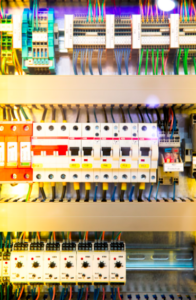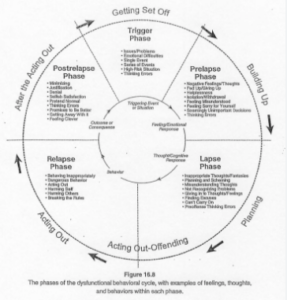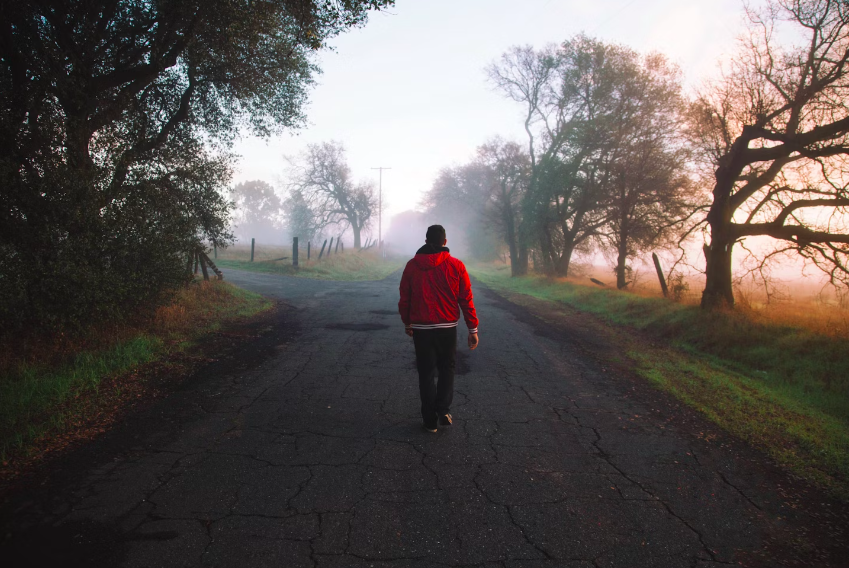Years back, I was talking with a therapist and he said, “I live at the intersection of abuse and addiction.”
I had yet to hear something so concise on the formation of addictions. Abuse may not always be involved, but there will inevitably be some level of neglect or unmet needs. What I tend to call emotional injuries.
 When we are hurt emotionally, disconnection occurs. We become disconnected from others and ourselves.
When we are hurt emotionally, disconnection occurs. We become disconnected from others and ourselves.
It’s almost like the hurt rips a tear in our worth.
“How could they have treated me this way?!”
Our nervous system picks up on this as though our skin was cut by a knife. Rather than getting first aid to a physical cut, emotional injuries require comfort, security, care and reassurance.
When these injuries do not get the care they need, then the body and nervous will continue to send out the signal that I am still injured. Unlike physical pain, the emotional pain will present itself more in our thought life or through incongruent behaviors.
Things like: unloving thoughts about yourself, untrusting thoughts of others, impulsive behaviors, self sabotage, or even withdrawal from things we enjoy doing.
Addictions start to form when we turn to the most immediate relief that requires the least amount of effort.
Something to soothe the pain, in particular the pain of disconnection and messages of unworthiness. Impulsive means like alcohol, pornography, spending, sex, violence, or drugs, will provide immediate relief. However, we get a negative return on our investment. Those “act outs” provide substantial up ticks in dopamine and hence cool the pain to a degree.
But after the act out has occurred, if the original injury has not been tended to, then we will find ourselves no better off. Things are better, but not really. The pain and the memory of the event will not only remain stored in our memories but in our bodies as well.
 Through repetitive use, our bodies and nervous system will get “hard wired” to whatever the substance is or whatever brings the immediate relief. We get habituated to believe that a particular act out is the only way to get relief. This creates an automatic cycle that will go into effect when anything like the original injury presents itself. It makes the quiet pain much louder.
Through repetitive use, our bodies and nervous system will get “hard wired” to whatever the substance is or whatever brings the immediate relief. We get habituated to believe that a particular act out is the only way to get relief. This creates an automatic cycle that will go into effect when anything like the original injury presents itself. It makes the quiet pain much louder.
In an almost hypnotic way, we will go through the process of getting that immediate relief. It becomes automatic.
Healing and becoming free from addictions usually begins when the old familiar ways of tending to the pain no longer work or start to cause havoc in our lives.
We may start to experience others not wanting to be around us, we may start to damage current relationships, we may get into legal trouble or have medical issues. Most often it takes quite a bit for us to experience that our ways for coping with the pain no longer work or keep us further away from the people and things we love the most.
Healing begins when we are open to facing old injuries and becoming equipped with new methods of wound care.
We have to create a new cycle. We have to create new wiring that becomes the new familiar. It is hard, arduous work that does not have a clear route or end point. Freedom begins when we begin to create a new intentional cycle. This new cycle of adaptive, intentional coping has three main components:
1. Developed awareness
2. Resistance to old automatic coping
3. Creation of new actions that care for the injury.
This new, intentional cycle of pain management and wound care also allows us to begin to form new connections within ourselves and thus with others. It’s also essential to see that the old route really only goes in circles.
Thus, one of the most significant steps a person can take, to start the journey of paving a new route, is to reach out for support. It’s essential to have a guide along the way.
Attached is a graphic I like to use. It nearly captures all the stages of reactively coping with pain.

This graphic takes some time to better understand and unpack. It takes time to discover our unhealthy ways and create new ones. Please feel free to contact me if you have more questions or would like to begin your journey of freedom from old ways into a new familiar.


